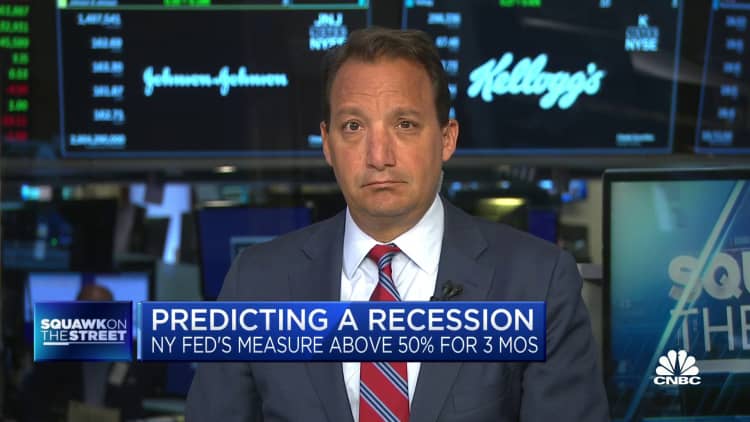[ad_1]
Suriyapong Thongsawang | Moment | Getty Images
How long economic recessions last
Yet the next slowdown may not leave so quickly.
Federal Reserve economists are predicting that there will be a mild recession later this year, “with a recovery over the subsequent two years,” according to the minutes of the Fed’s March 21-22 meeting.
Because the economists blame the recent turmoil in the banking industry for the impending economic trouble, they expect the pain to endure for longer than usual: “Historical recessions related to financial market problems tend to be more severe and persistent than average recessions,” staff noted in the minutes.
Indeed, the longest recession in recent decades was the 2008 financial crisis, which slogged on for 18 months.

Another tricky aspect to the current economic conditions is that the Federal Reserve is deliberately trying to slow economic growth in the hopes of getting inflation under control, said Preston Caldwell, the chief U.S. economist at Morningstar. Cutting rates usually helps the economy rebound from downturns.
Still, Caldwell expects that the central bank will tame inflation by the end of this year, and be able to start bringing rates down in 2024, at which point the economy would start its recovery.
Preparing for a downturn
If you are worried about a recession and possible job loss, Cathy Curtis, founder and CEO of Curtis Financial Planning in Oakland, California, recommends updating your resume so that you’re as prepared as possible to look for a new position should you need to.
Keeping in touch with a network of people in your field can also help you learn about open positions or even get a referral, said Curtis, who is a member of the CNBC Financial Advisor Council.
Having a solid emergency savings account, anywhere from three months to a year’s worth of expenses salted away, is one of the best safeguards to help ride out a downturn without having to go into debt, experts say.
[ad_2]

